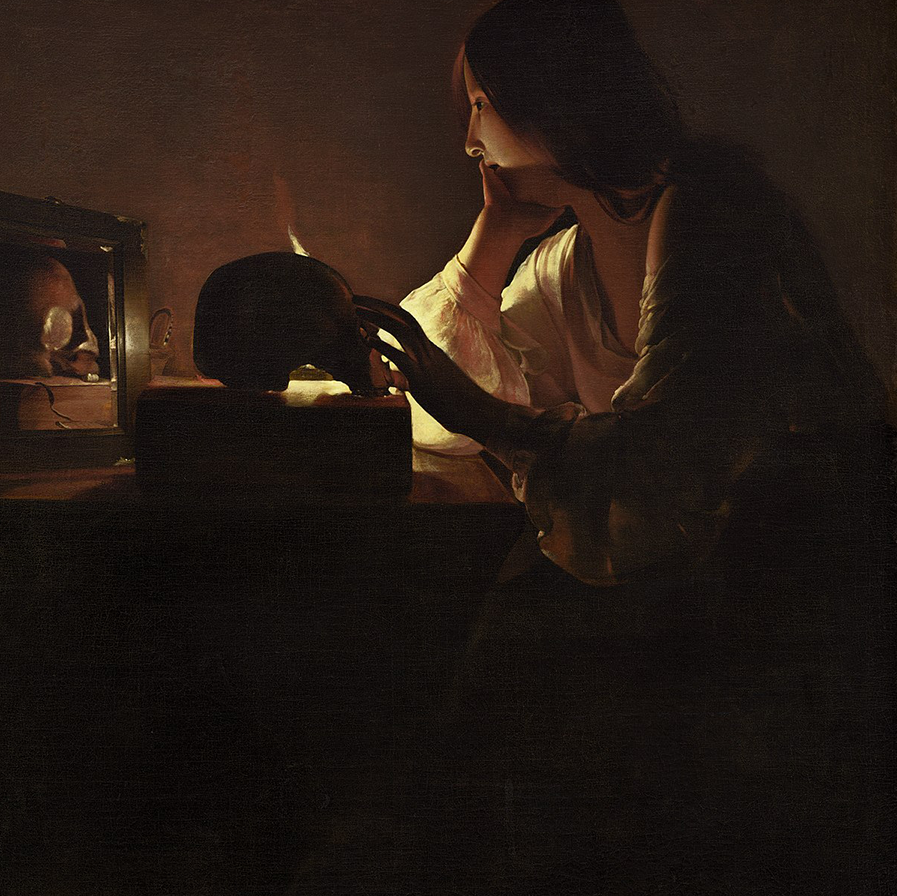One of the counter-intuitive blessings of Lent is that it is long enough to be tedious. It’s simply not possible (at least in my experience) to keep up a state of intense spiritual activity for the whole forty days (or forty-six, if we count the Sundays of Lent). Forty days is time enough to start out feeling very high-minded about what one has chosen to give up as a penance or take on as a devotional practice, and to come down to earth with the humbling recognition that we’re not quite at the level of holiness we thought we were.
And if Lent is tough in ordinary years, 2021 is well placed to be even more of a slog than it usually is. After a year living in a pandemic, many of us are feeling rather ground down already. How can we approach this penitential season in a way that will help us grow, rather than depress us even more?
What we need, I will venture to say, is not to make heroic efforts to raise our spiritual level. Rather, we might do well simply to own up to where we are spiritually, to face the weakness, fatigue, frustration, and spiritual dullness that we feel, and to invite God to enter in right there.
Christina Rossetti’s poem “A Better Resurrection” is worth reflecting on in this context. A devout Anglican, Rossetti invites us to look squarely at a state of spiritual grayness and depression that we often find difficult to name—and she helps us pray through it. Let’s spend a little time considering what we can learn from this poem.
“A Better Resurrection” by Christina Rossetti
I have no wit, no words, no tears;
My heart within me like a stone
Is numb’d too much for hopes or fears;
Look right, look left, I dwell alone;
I lift mine eyes, but dimm’d with grief
No everlasting hills I see;
My life is in the falling leaf:
O Jesus, quicken me.
My life is like a faded leaf,
My harvest dwindled to a husk:
Truly my life is void and brief
And tedious in the barren dusk;
My life is like a frozen thing,
No bud nor greenness can I see:
Yet rise it shall—the sap of Spring;
O Jesus, rise in me.
My life is like a broken bowl,
A broken bowl that cannot hold
One drop of water for my soul
Or cordial in the searching cold;
Cast in the fire the perish’d thing;
Melt and remould it, till it be
A royal cup for Him, my King:
O Jesus, drink of me.
Intense grief is sometimes easier to understand (in ourselves and in others) than the helplessness of weariness and depression. To have “no wit, no words, no tears,” to feel like “stone,” can be frightening; we suffer more because we feel helpless even to articulate what’s wrong. Our Lenten prayer, then, can include what Rossetti gives here: “O Jesus, quicken me.”
While we are in this spiritual shadow, it can be difficult to grasp the truths that we affirm, week by week, in the Creed. We can say that we “look for the resurrection of the dead, and the life of the world to come,” and indeed believe it wholeheartedly—but nonetheless resonate with Rossetti’s feeling that “life is void and brief / And tedious in the barren dusk.” It’s possible to know that Easter will come and still have it feel very far away, very dry and abstract: “No bud or greenness can I see.”
Such an experience of spiritual dryness can be all the more dismaying if it’s interpreted as evidence of a loss of faith—which can lead to dangerously counterproductive attempts to stir up pious feelings in oneself, mistaking one’s emotional reactions for faith itself. Rossetti’s poem offers a wiser course. Into even the most “barren” and “frozen” state, she recognizes that the life of Christ will rise, like sap in a tree as spring arrives. It is, then, a profound and genuine act of faith to pray in the midst of dryness, “O Jesus, rise in me.”
Rossetti’s third stanza is particularly apt as we start our Lenten journey, with the Ash Wednesday fast reminding us of our bodily weakness, as well as our spiritual weakness. We are fallen creatures, “broken bowls.” By our own power, we can’t hold even “one drop of water” for our parched, thirsty souls. Here, in recognizing our total helplessness, we can face up to our need to be re-made.
Re-made—but how, and for what end? Rossetti offers up a prayer to “cast in the fire” her whole life, her soul, which she calls a “perished thing,” and rightly so. We come from dust, and to dust we shall return. But in the crucible of God’s grace, his refiner’s fire purges the dross, melts and re-forms the gold, so that we can be made into “a royal cup” for our King. And so Rossetti’s final prayer is a hopeful, even daring one: “O Jesus, drink of me.” Let me be a beautiful vessel, suitable for the use of a King: let me be of service to the Lord. Let my whole self, body and soul, be a worthy chalice to receive our Lord in the Blessed Sacrament of the Altar. And let our Lord drink of me, that I may be drawn into his Mystical Body, that I may abide in him, and he in me.
The experience of spiritual weariness and weakness is inevitable in the Christian life. It’s not a question of whether we will find ourselves struggling, but when. In the Church’s wisdom, our annual journey through the dry lands of Lent gives us a chance to face up to that weakness and not to fear it, to pray for the graces we need to grow in holiness, and to offer up our weariness as part of our prayer, itself, on the way of the Cross.
